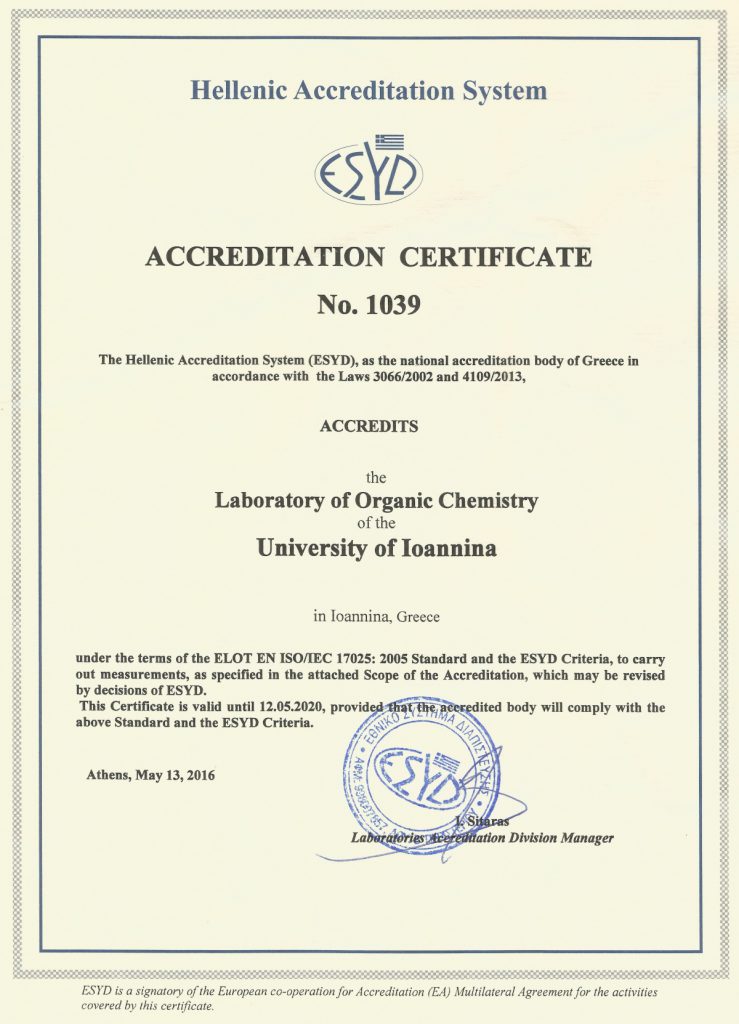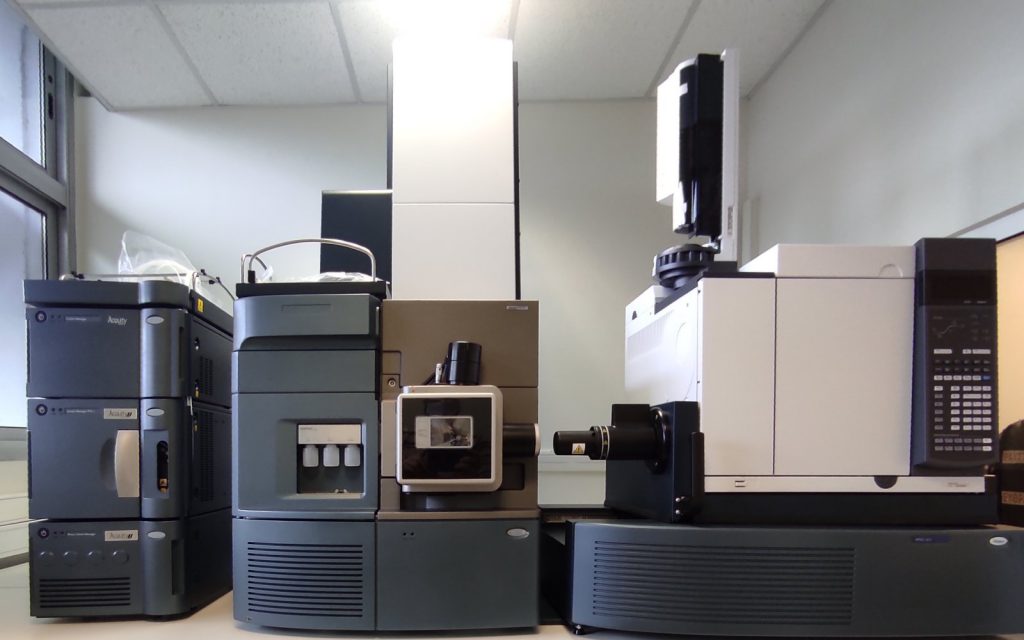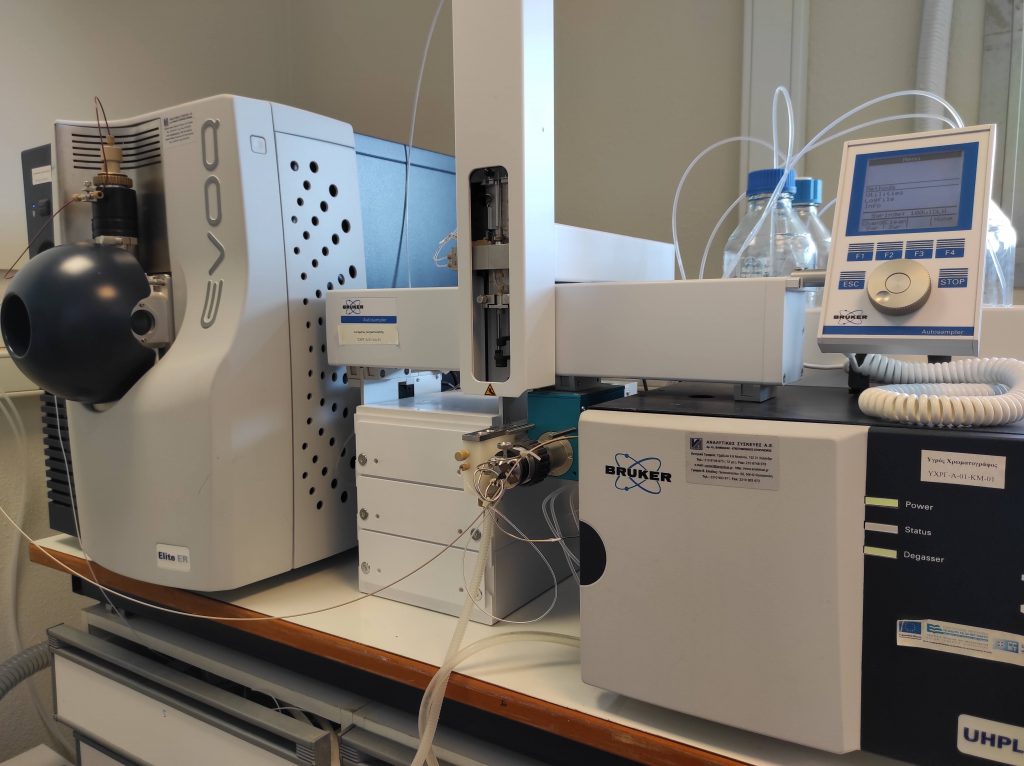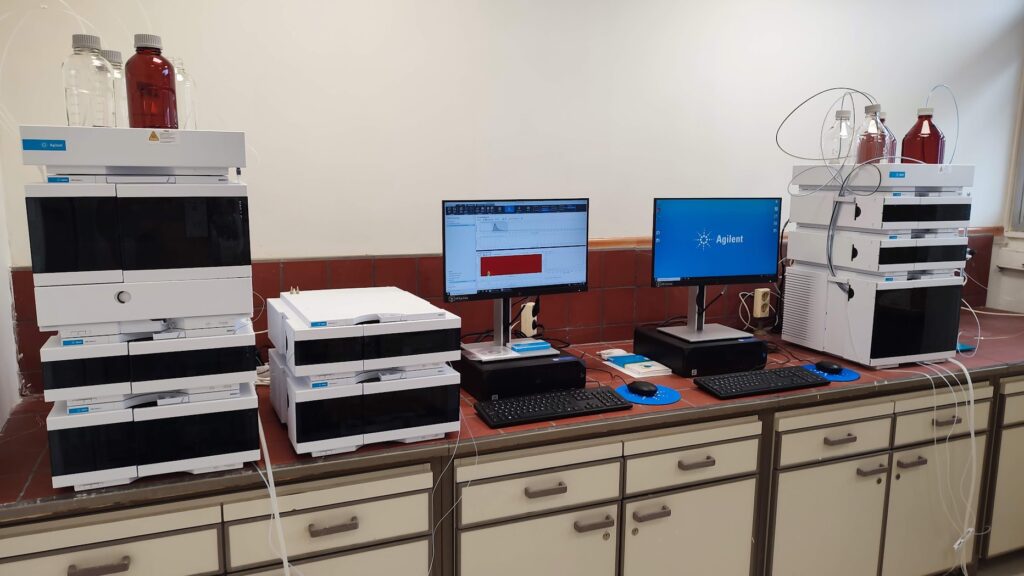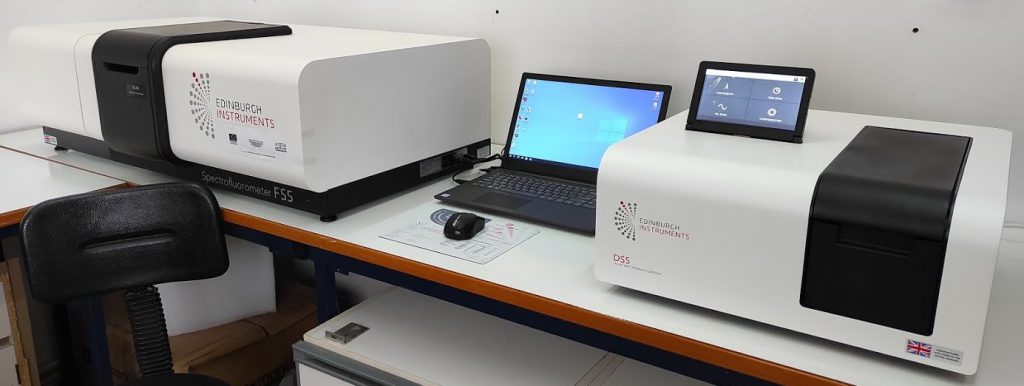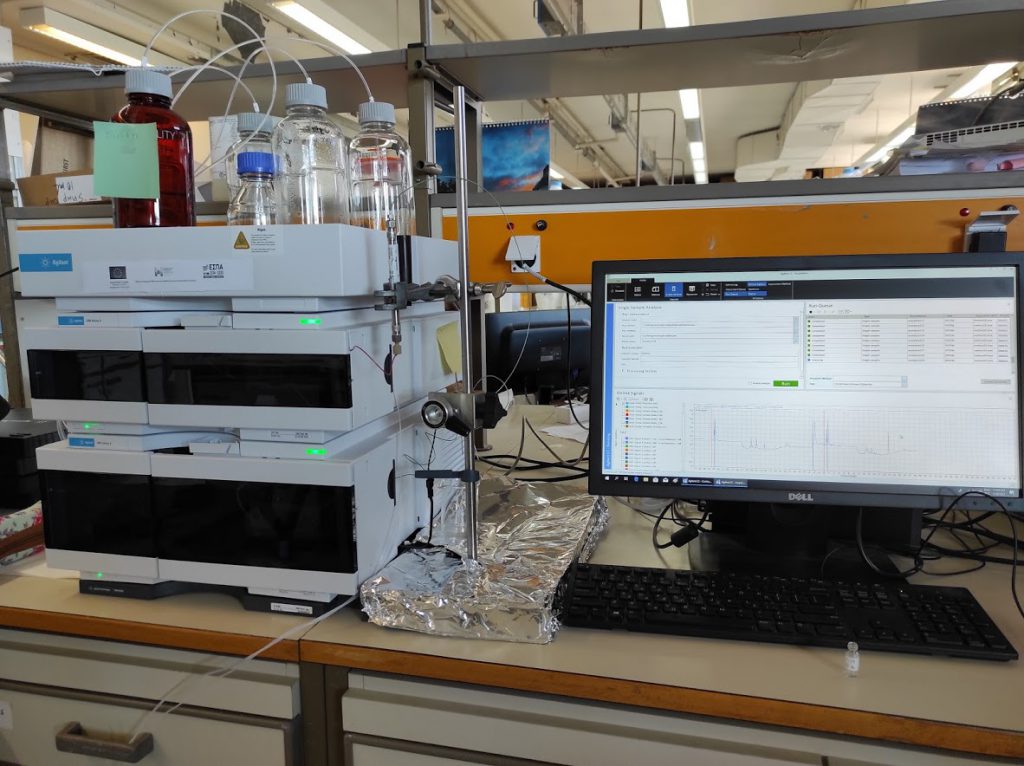The Laboratory
The Department of Chemistry of the University of Ioannina, since its founding in 1977, has been standing out for its high level of research activity, having international distinctions, and attracting competitive research programs at the national and international levels. Based on this know-how and by having state-of-the-art equipment, the Laboratory of Organic Chemistry and Biochemistry has developed a wide range of research activities in its operational fields.
The Biomedical and Analytical Center (B.A.C.) operates under the umbrella of the Laboratory of Organic Chemistry and Biochemistry, under the directions of Prof. Andreas Tzakos and the management of Nikolaos Parisis.
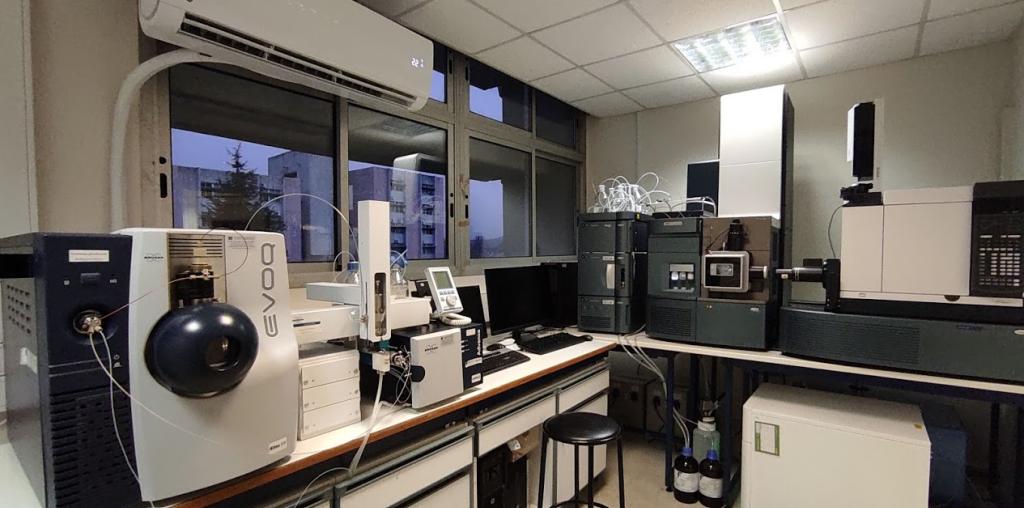
The primary objective of the laboratory is to understand biological processes at the molecular & atomic level, with the ultimate aim of using this knowledge to tackle specific problems in human health and diseases. Its research encompasses a wide variety of projects including targeted and untargeted metabolomic analysis of plant extracts and different biological matrices for different compound categories including phytochemicals, drugs, pollutants, pesticides, etc., as well as bioavailability, pharmacokinetics, and bioequivalence studies. It also actively participates in the discovery of effective early diagnostics/therapies for different disease states, including cancer, neurodegenerative conditions, and autoimmune diseases.
It houses state-of-the-art equipment including a unique hybrid GC/UHPLC-QToF mass spectrometry system (Waters Xevo G2-XS), a triple quadruple UHPLC-MS/MS system (Bruker EVOQ Elite ER), preparative and analytical HPLC systems (Agilent 1260 Infinity II), UV/Vis and fluorescence spectrometry systems (Edinburgh Instruments), a platform for plant extracts and essential oil production using Supercritical Fluid Extraction (SFE Process LAB 2L), microwave organic synthesis platform, protein expression/purification platform, in silico-screening platform. Furthermore, the lab has access to cell cultures and cell-based screening platforms, HS-SPME/GC-MS, high-resolution NMR, and Orbitrap MS systems.
The lab has access to 500 MHz NMR equipped with a cryoprobe that can record multidimensional NMR spectra to complement the chemical fingerprint analysis and has established and patented a technology that takes place in a 5 mm tube (NMR tube bioreactor) for real-time biotransformation and ligand-protein screening of natural products, allowing the development of added value bioactive compounds.
Its flagship system, the hybrid GC/UHPLC-QToF mass spectrometer is controlled by a novel powerful platform, the Waters® UNIFI® Scientific Information System. It is a unique software platform that merges LC/GC and high-performance MS data (both quadrupole and time-of-flight) into a single solution that encompasses data acquisition, processing, visualization, reporting, and configurable compliance tools within a networked laboratory environment. UNIFI provides the flexibility to employ high-resolution separations and high-performance mass spectrometry across the entirety of discovery, development, and quality control. And UNIFI’s data mining and comparison capabilities enhance the ability to understand results with an unparalleled capability to aggregate and manage data.
The UNIFI scientific information system integrates many platform and application solutions for pesticide and mycotoxin screening, forensic toxicology analysis, natural products analysis, human metabolite identification, biopharmaceutical analysis, regulated bioanalysis, etc. It also includes several commercial and in-house libraries that contain more than 200,000 different compounds which can be identified with significant precision.
It is of great importance that the laboratory has established an agreement with Waters Company and it is identified as a Waters High-Resolution Mass Spectroscopy Reference Laboratory for the broader area of the Balkans.
The laboratory personnel is skilled not only in chemical/metabolomic analysis but also in multivariate statistical analysis techniques (Principal Component Analysis, Cluster Analysis. Discriminant Analysis, etc), rendering it capable to successfully evaluate the analysis results and drawing significant conclusions.
Furthermore, the laboratory, in a highly competitive environment and under adverse conditions, has been accredited for compliance with ISO/IEC 17025 (accreditation certificate No. 1039) and has also been certified for operating according to Good Laboratory Practices (GLP).
